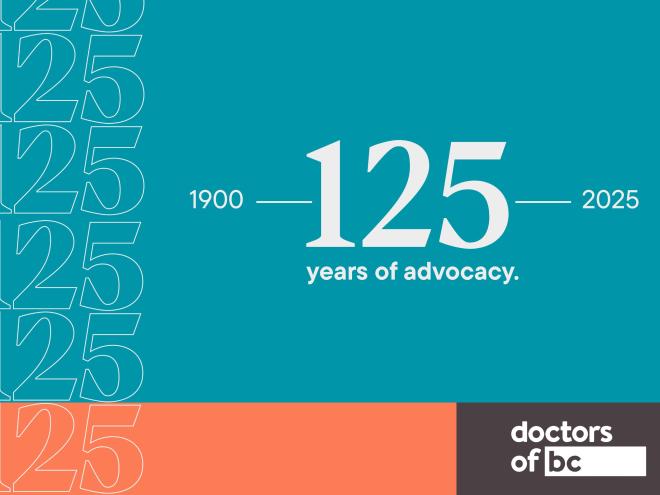The full results of the 2023 annual Health Authority Engagement Survey are now available. This survey is an important tool for us to hear your thoughts and feelings about the quality of your engagement with your health authority and/or local hospital – so that together, we can advocate for real change. For four weeks last fall, 2,625 members took part in the eighth annual survey and shared more than 6,000 comments. The feedback presents a snapshot of how participating BC doctors feel about their health authorities, facilities, and their general day-to-day working lives and concerns.
 This year’s results reflect the ongoing health care system challenges faced by physicians across the province. Doctors of BC will be reaching out to each Health Authority in BC in early 2024 to discuss these results and develop a plan to help address members’ concerns.
This year’s results reflect the ongoing health care system challenges faced by physicians across the province. Doctors of BC will be reaching out to each Health Authority in BC in early 2024 to discuss these results and develop a plan to help address members’ concerns.
The results at a glance
-
Overall, there was a downward trend in most health authorities and hospitals, with many of these drops reflecting the challenges faced by the health care system and physicians alike.
-
Less than half of members are satisfied with their current health authority as a place to practice medicine (48%).
-
Despite physicians reporting fewer physical or psychological safety incidents, those who did experienced them more often, likely contributing to physicians feeling less safe in their workplaces.
-
Less than 60% of participants now feel they belong to a collaborative, team-centered unit. Scores that traditionally have been higher, such as in team relationships, are showing signs of decline.
-
Physicians in some areas around the province shared they are struggling to adequately care for their patients. Challenges most cited include staff shortages, overcrowded emergency rooms and hospitals, and frustrated patients.
-
Physicians are also reporting they feel they have less influence over changes in their workplace than last year.
-
On a positive note – more physicians report they are able to reasonably balance the demands of work and personal life, up 3% from last year.
Read the reports
The Survey Report provides an overview of provincial and regional engagement trends, health and safety themes, and broader demographic information. The What We Heard fact sheet shows an overview of the key findings at a glance.
A Supplemental Report with charts outlining breakdowns by practice type, location, hospital/facility, community, is also available on our Health Authority Engagement Survey webpage, along with reports from previous years.
Advocating for you
Many of the concerns raised in the survey align with ongoing Doctors of BC work. At a provincial level, we have advocated with government on physician concerns such as shortages, overcrowding, and physician burdens. We continue to support physician safety through our Memorandum of Agreement on Physical and Psychological Safety with provincial and regional working groups, as well as a newly established Community Physician Health and Safety Oversight Group being led by SWITCH BC. Members can also find additional supports through our Physician Health Program.
At the local level, Doctors of BC provides support to Divisions of Family Practice and MSAs to engage and work effectively with health authorities. The Regional Advisors and Advocates (RAAs) support physicians where they live and work in communities around BC and advocate for many members in the province. You can read more collaborative stories on the SSC Facility Engagement and FPSC websites.
Next steps
Doctors of BC will be meeting with senior leaders in each health authority to address specific issues identified by physicians, as outlined in the Doctors of BC new Strategic Plan. Survey results will also be presented to groups across the province, including Divisions of Family Practice, Medical Staff Associations, and the Ministry of Health. We will continue to use these survey results to inform our ongoing advocacy efforts and urge health authorities to use them in their own performance measures, and to collaborate with local and regional leaders on necessary changes.
Thank you to all who participated in the survey. If you have any questions, please contact advocacy@doctorsofbc.ca



